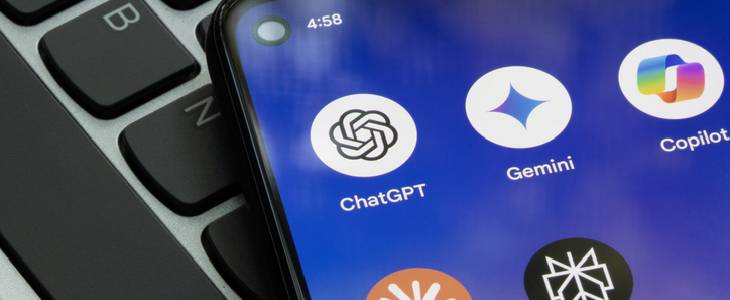Artificial intelligence platforms like ChatGPT allow parties to create or obtain inspiration to create new works in seconds. However, various AI platforms have raised concerns about potential copyright infringement, especially for platforms that use copyrighted material to train the AI model.
Overview of Copyright Law
In the U.S., copyright law protects original works of creative expression, such as literature, music, paintings, sculptures, and visual media (e.g., television or movies). Copyright can protect various text-based works, including novels, short stories, poems, play dialogue or stage direction, teleplays and movie scripts, and song lyrics.
Copyright prohibits anyone other than the copyright holder from copying, displaying, or using the copyrighted work. However, the rise of artificial intelligence platforms like ChatGPT has led to questions and challenges regarding this scope of copyright law. Large language model (LLM) AIs use datasets of existing material, potentially including copyrighted material, to train the AI to generate new content. As a result, while an AI does not directly reproduce copyrighted material, it may produce an output using copyrighted material.
How ChatGPT Uses Copyrighted Materials
ChatGPT and other LLMs work by training a computer algorithm using vast quantities of written data to help the model generate a response to a query using predictive text. Based on the materials fed into ChatGPT, the AI can generate an output using the data fed into the model to predict how a person might respond to the query. For example, say a person asks ChatGPT to write a sonnet about their dog Fido in the style of Shakespeare. The AI will pull from its dataset to understand that the person entering the query wants a sonnet about their dog named Fido. The AI will also specifically recall Shakespeare’s sonnets to generate an output using a similar tone, cadence, and word usage as Shakespeare.
Although Shakespeare’s works have fallen into the public domain, the process works the same for other authors whose works remain copyrighted. Unfortunately, the limitations of current AI models can lead to issues such as paraphrasing or excessive usage of identical text to copyrighted materials.
Copyright Concerns for ChatGPT Users
ChatGPT users should familiarize themselves with potential copyright concerns that arise when using AI to generate new content. These concerns include:
- Risk of Plagiarism – AIs can sometimes generate outputs that too closely resemble copyrighted works used to train the model.
- Content Ownership Issues – A party that uses AI to generate original content may have difficulty obtaining copyright protection since the person did not create the content. However, an individual may obtain copyright protection for original work inspired by an AI’s output.
- Use of Unlicensed Copyrighted Materials – Unfortunately, users of AIs may not know whether an AI’s programmers trained the model using unlicensed copyrighted materials, which can create legal trouble when using such AI output for commercial purposes.
Mitigating Copyright Risks Posed by AI
Copyright holders, AI users, and AI model programmers can mitigate the potential for infringement by following best practices:
- AI users can cross-reference content using plagiarism- and AI-detection tools to verify that output does not infringe upon copyrighted material or sound too much like the results of a ChatGPT inquiry.
- AI model programmers can increase transparency in the data they use to train their models. Ideally, programmers should obtain licenses to use copyrighted material to train the AI. Programmers should also ensure that the AI does not produce content replicating copyrighted material fed into the model or warn users against using outputs for commercial or public purposes.
- Companies and content creators can adopt policies regarding AI-generated content, including evaluating whether such content may have come from an AI using unlicensed copyrighted material. Policies can also address how to attribute or credit material created or inspired by an AI.
Contact a Copyright Attorney Today
When you have concerns about how ChatGPT and similar tools may affect your copyright, get the legal advice and guidance you need from experienced counsel. Contact Sul Lee Law Firm PLLC today for an initial consultation with a Texas copyright attorney to discuss artificial intelligence’s effects on copyright.
